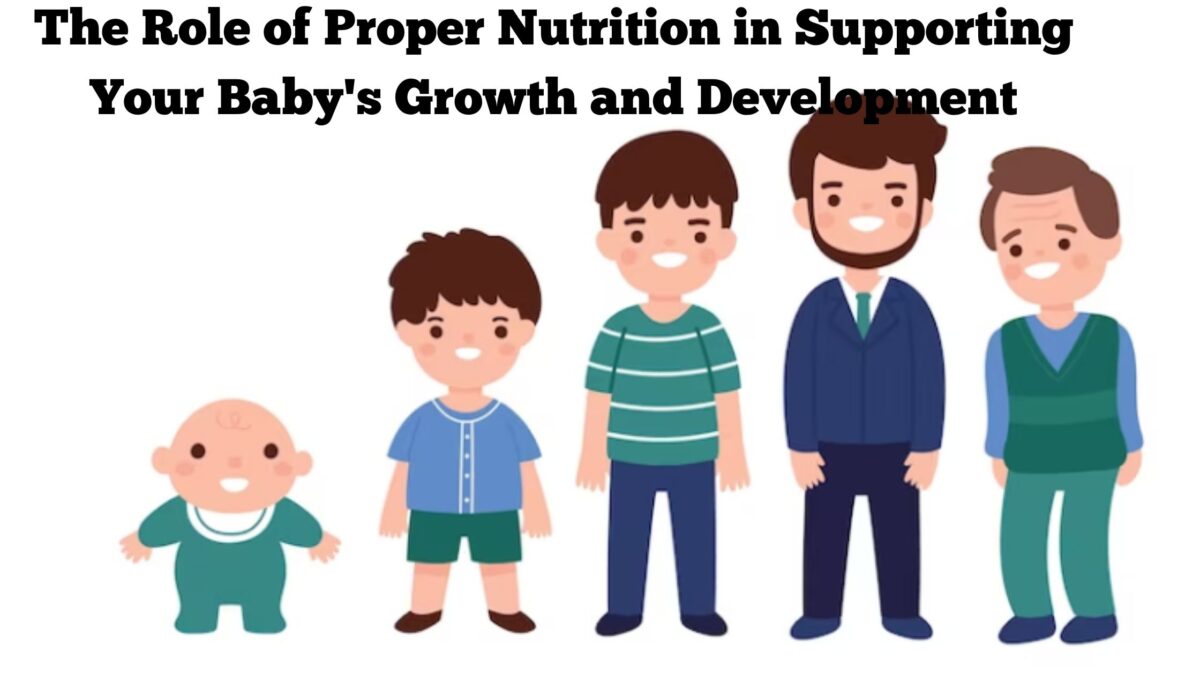Nutrition is a critical component of every baby’s growth and development. Proper nutrition provides babies with the essential nutrients, vitamins, and minerals they need to build strong bones and muscles, maintain healthy organ function, and develop cognitive and motor skills. Therefore, ensuring your baby receives proper nutrition is crucial in supporting their overall health and development.
we will discuss the role of proper nutrition in supporting your baby’s growth and development. We will also cover essential nutrients that babies need and tips for ensuring that they receive a well-balanced diet.
Role of Proper Nutrition in Supporting Your Baby’s Growth and Development:
Proper nutrition plays a vital role in supporting your baby’s growth and development. During the first year of life, babies experience rapid growth and development. Therefore, they need a sufficient amount of nutrients, vitamins, and minerals to support their growth and development.
Nutrition also plays a significant role in supporting your baby’s immune system. A well-balanced diet can help your baby fight off infections, reduce the risk of chronic diseases later in life, and promote overall health.
Essential Nutrients for Babies:
Babies need a range of essential nutrients to support their growth and development. These nutrients include:
1. Protein:

Protein is essential for building and repairing tissues in the body, including muscles, organs, and bones. Breast milk and formula are excellent sources of protein for babies.
2. Carbohydrates:

Carbohydrates provide energy for the body, and babies need them to fuel their growth and development. Breast milk and formula also contain carbohydrates.
3. Calcium:

Calcium is necessary for strong bones and teeth, and it plays a role in muscle and nerve function. Breast milk and formula provide sufficient amounts of calcium for babies. However, when babies start eating solid foods, calcium-rich foods such as yogurt, cheese, and leafy greens should be introduced.
4. Vitamin D:

Vitamin D helps the body absorb calcium, which is essential for strong bones and teeth. Breast milk and formula contain some vitamin D, but babies also need exposure to sunlight to produce enough vitamin D. Vitamin D-fortified foods such as cereal and milk can also provide additional vitamin D.
Tips for Ensuring Your Baby Receives a Well-Balanced Diet:
- Breastfeed or formula-feed your baby exclusively for the first six months of life. Breast milk and formula provide all the essential nutrients needed for a baby’s growth and development.
- Introduce solid foods around six months of age. Start with single-ingredient foods such as pureed fruits and vegetables and gradually introduce other foods.
- Offer a variety of foods to your baby to ensure that they receive a well-balanced diet. Include fruits, vegetables, whole grains, protein-rich foods, and healthy fats.
- Avoid offering your baby sugary and processed foods. These foods provide little to no nutritional value and can lead to obesity and other health problems.
- Offer water between meals to keep your baby hydrated. Do not offer juice to babies under six months of age, and limit juice intake for older babies.









